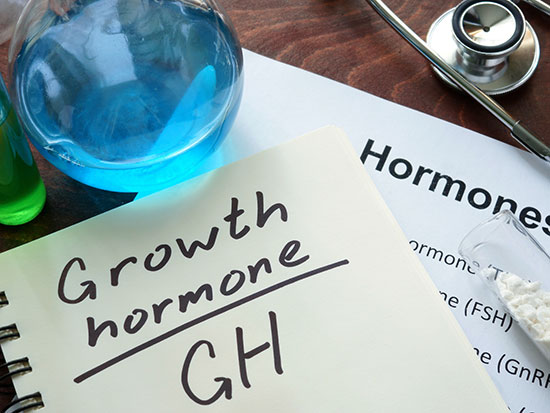Need more information? Contact us
 Changes in growth hormone levels during the early stages of development can have a long-lasting effect on lifespan, especially in males, according to new findings from the University of Alabama at Birmingham.
Changes in growth hormone levels during the early stages of development can have a long-lasting effect on lifespan, especially in males, according to new findings from the University of Alabama at Birmingham.
This study, published this week in eLife, provides new evidence that hormonal levels during the first few weeks following birth can have a long-term impact on lifespan, mortality risks and health status in old age. This could help inform future health care management during early life and the development of interventions aimed at improving quality of life for older individuals.
However, the researchers recommend caution when interpreting the results.
“We tested the effects of early GH exposure on long-lived, GH-deficient Ames dwarf mice and normal littermate mice that did not have such a deficiency,” said first and corresponding author Liou Y. Sun, assistant professor of biology in UAB’s College of Arts and Sciences. “The effect of GH treatment on the normal mice was complicated by levels of the hormone already existing in their systems. It is worth noting that longevity was shortened by GH treatment in the hormone-deficient mice only.”
Despite a long tradition of research to understand how events during development can influence the characteristics and risk of disease in adult life, very little is known about how early exposure to hormones can influence aging, adult health and longevity.
To address this question, Sun and his colleagues treated GH-deficient Ames dwarf mice and normal control mice with GH or saline during the first few weeks after birth — a critical developmental window when longevity and aging rate can be affected by GH signals.
In the first set of experiments, they discovered that the median lifespan of both male and female GH-treated dwarf mice was decreased by 165 days relative to that of the saline-treated animals. Further analyses of each sex then revealed that the median lifespan in male GH-deficient mice was shortened by 204 days.
“There was a smaller treatment effect on overall or median survival in female dwarf mice, indicating a sex-specific response to early GH exposure,” Sun said.
Next, to discover the mechanisms by which early-life GH exposure affects aging and longevity, the team looked at the possible involvement of stress-responsive pathways, inflammation signaling and related gene expression. They found the dramatic effects of early GH action on the changes in these pathways and the functions of various tissues continue into mid- and late adult life and may be permanent.
“Taken altogether, our results show that a relatively brief period of GH exposure during the critical developmental time can have a dramatic impact on both lifespan and characteristics associated with age,” Sun said. “We believe a deeper understanding of how such factors and signals during early life may influence mammalian aging holds potential importance from both individual and public health perspectives.”
The paper “Longevity is impacted by growth hormone action during early postnatal period” can be accessed online.